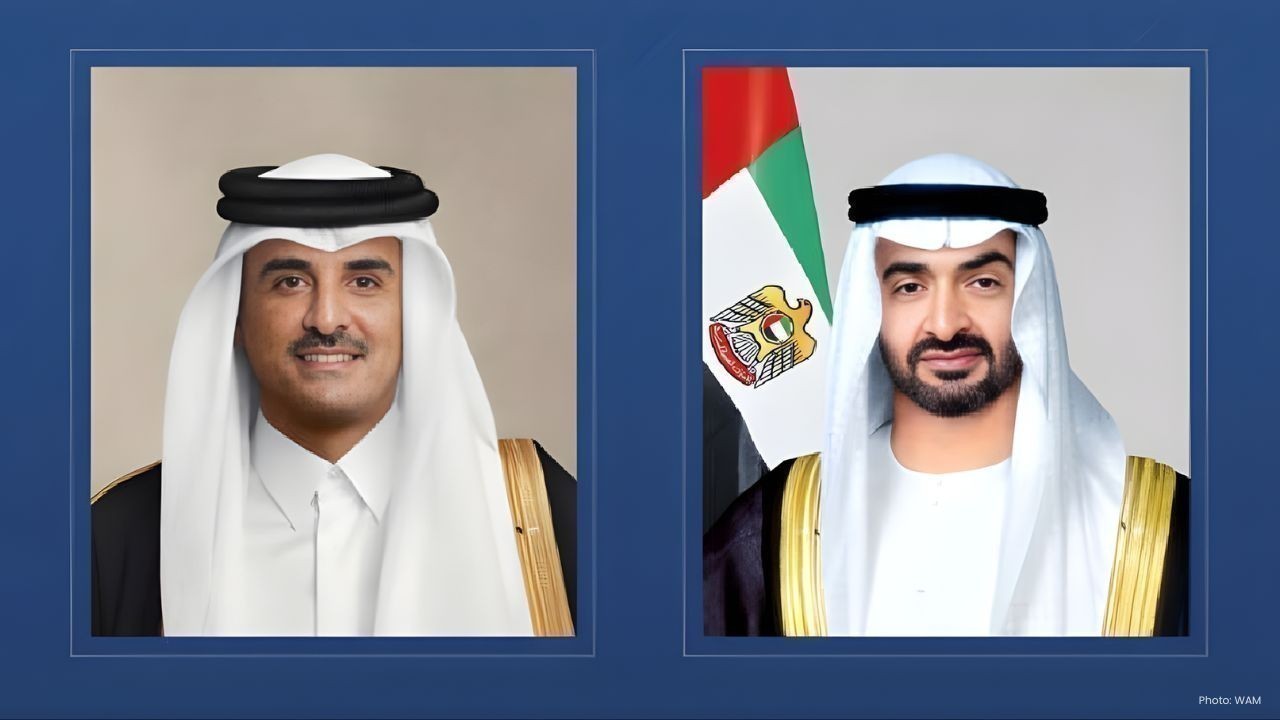
Post by : Anis Karim
When Airbus launched the A380, it was more than just an aircraft — it was a statement. Designed to carry over 800 passengers in an all-economy layout and over 500 in mixed classes, it was meant to redefine air travel. The superjumbo aimed to connect the world's major hubs with fewer flights and more people, offering luxurious interiors, onboard lounges, and even showers in some configurations. It symbolized ambition and technological prowess, but ultimately, it may have also symbolized misreading the future of aviation.
The A380 was built around the “hub-and-spoke” model of air travel. Major airports would act as hubs where passengers would converge before flying off to smaller destinations. But while Airbus was betting big on this idea, the market was already shifting toward “point-to-point” travel using smaller, more fuel-efficient twin-engine aircraft. Travelers wanted direct routes, and airlines wanted to avoid the hassle and cost of congested hub airports. This change made the A380 less practical for many carriers.
Despite its passenger capacity, the A380 came with high operational costs. Its four engines consumed more fuel than the newer generation of twin-engine aircraft. Moreover, not every airport could accommodate the A380. Runways had to be reinforced, taxiways widened, and gates modified. These infrastructure demands limited where the A380 could fly and added extra cost for airports and airlines alike.
At the beginning, airlines rushed to place orders. Emirates became its biggest fan, ordering over 120 units and shaping its global network around the A380. However, for most other airlines, enthusiasm faded. Carriers like Singapore Airlines, Lufthansa, and Air France began retiring their A380 fleets earlier than expected. As newer aircraft like the Boeing 787 and Airbus A350 came into service offering similar range but lower fuel burn and more flexibility, the A380’s appeal dimmed. Airbus eventually announced it would end production in 2021 due to lack of demand.
When COVID-19 hit, air travel nearly ground to a halt. Airlines had to make quick decisions about which aircraft to ground permanently. The A380 was an easy target. It was too big, too expensive to operate, and not suited for the depressed passenger numbers. Carriers like Qatar Airways, British Airways, and Qantas removed the aircraft from service, some temporarily and others indefinitely.
If there’s one airline that kept the A380 dream alive, it’s Emirates. The Dubai-based carrier built its brand around the A380’s unique in-flight experience — from private suites to onboard showers and a lounge bar. Even after production ceased, Emirates continued operating the aircraft on key high-traffic routes. But even they have started looking ahead, ordering a fleet of more fuel-efficient aircraft for the future. They’ve acknowledged that while the A380 will stay in service for a few more years, it won’t be the centerpiece forever.
Sustainability is becoming a major focus for airlines and travelers alike. The A380’s high fuel consumption and emissions make it less desirable in a world aiming for greener skies. Governments and regulators are pushing for lower carbon footprints, and airlines are responding by turning to newer, greener aircraft. The A380 doesn't align with this direction, putting additional pressure on its remaining operators.
Typically, when airlines retire aircraft, there's a second-hand market to sell them to charter operators, smaller airlines, or freight carriers. The A380 has found no such luck. Its unique size makes it ill-suited for cargo conversion. Leasing companies have also struggled to find takers. Some retired A380s have already been scrapped for parts — a rare fate for such young aircraft.
The A380 might end up remembered not just for its size but for the era it represented — a time when flying was increasingly about luxury, spectacle, and hub-based connectivity. The aviation world today is focused more on efficiency, direct routes, and smaller planes with better technology. In this context, the A380 is a relic of an ambition that soared too high and didn’t adapt fast enough.
Airbus is now focusing on aircraft like the A350 and its future hydrogen-powered models. Airlines are investing in twin-engine long-haul jets that can reach almost any part of the world. These planes are more efficient, cost-effective, and environmentally friendly. As the industry transitions to new fuel technologies and smarter travel patterns, the place for giants like the A380 continues to shrink.
Despite its commercial failure, the A380 has earned a loyal fanbase. Aviation enthusiasts, travelers, and frequent flyers still marvel at its quiet cabin, spacious feel, and smooth flight experience. For many, it represents the golden age of air travel — the comfort and joy of flying at its best. There's a real emotional connection to the aircraft, which may help preserve a few in museums or for special flights.
Some have speculated whether the A380 could make a comeback in a different role — perhaps modified for ultra-premium services or as a luxury flying hotel concept. While technically possible, the economics are unlikely to make sense. Airlines are businesses first, and the A380 doesn't serve today's bottom line.
Despite its short production run and financial drawbacks, the A380 pushed the boundaries of aircraft design. It proved that such a massive, double-decker plane could be built and flown safely around the world. It challenged Boeing's monopoly with the 747 and introduced innovations in aerodynamics, noise reduction, and passenger comfort. Its legacy will be felt in the engineering of future aircraft, even if it didn’t win the commercial race.
Airlines are making hard choices, and most are choosing agility and efficiency over grandeur. With soaring fuel prices, volatile travel demand, and growing climate responsibilities, flying smaller aircraft more frequently is the winning formula. The A380’s grandeur doesn’t align with the industry's goals anymore. It's not about carrying the most people in one plane; it's about flying smarter.
The end of the A380 won't come overnight. Some will continue flying until the end of this decade. For now, aviation lovers can still catch a ride on the iconic aircraft with select airlines. But as more are retired and scrapped, the days of the superjumbo are clearly numbered. The skies are changing, and the A380 is slowly fading into history.
This article is intended for informational purposes only. It does not offer financial, commercial, or investment advice. The opinions expressed are based on current trends and available information and do not reflect the views of any airline or manufacturer.

Predictheon Wins WHX Xcelerate Innovation Champion 2026
Predictheon won WHX 2026 Xcelerate, earning US$12,000, WHX 2027 space and global exposure for its AI

Omantel Launches Otech to Drive Oman’s Future Tech Vision
Omantel launches Otech to accelerate Oman’s digital transformation, strengthen data sovereignty, exp

Daimler Truck MEA Honors Top Distributors at EliteClass 2025
Daimler Truck MEA hosted EliteClass Awards 2025 in Dubai, honoring top distributors across 19 catego

King Mohammed VI Launches Safran Landing Gear Plant in Morocco
Morocco strengthens its aerospace leadership as King Mohammed VI launches Safran’s €280M landing gea

Qatar Emir Sheikh Tamim Arrives in UAE on Fraternal Visit
Qatar’s Emir Sheikh Tamim bin Hamad Al Thani arrived in Abu Dhabi on Saturday. UAE President Sheikh

Shaidorov Wins Stunning Olympic Gold as Malinin Falters
Kazakhstan’s Mikhail Shaidorov won men’s figure skating gold after US star Ilia Malinin fell twice.

Shakira’s 5-Show El Salvador Residency Boosts Bukele Image
Shakira’s five sold-out concerts in San Salvador highlight El Salvador’s security shift under Bukele

Why Drinking Soaked Chia Seeds Water With Lemon and Honey Before Breakfast Matters
Drinking soaked chia seeds water with lemon and honey before breakfast may support digestion hydrati

Morning Walk vs Evening Walk: Which Helps You Lose More Weight?
Morning or evening walk Learn how both help with weight loss and which walking time suits your body

What Really Happens When You Drink Lemon Turmeric Water Daily
Discover what happens to your body when you drink lemon turmeric water daily including digestion imm

DXB News Network Presents “Ctrl+Alt+Wim”, A Bold New Satirical Series Starring Global Entertainer Wim Hoste
DXB News Network premieres Ctrl+Alt+Wim, a bold new satirical micro‑series starring global entertain

High Heart Rate? 10 Common Causes and 10 Natural Ways to Lower It
Learn why heart rate rises and how to lower it naturally with simple habits healthy food calm routin

10 Simple Natural Remedies That Bring Out Your Skin’s Natural Glow
Discover simple natural remedies for glowing skin Easy daily habits clean care and healthy living ti

Mattel Revamps Masters of the Universe Action Figures for Upcoming Film
Mattel is set to revive Masters of the Universe action figures in sync with their new movie, ignitin

China Executes 11 Members of Infamous Ming Family Behind Myanmar Scam Operations
China has executed 11 Ming family members, linked to extensive scams and gambling in Myanmar, causin